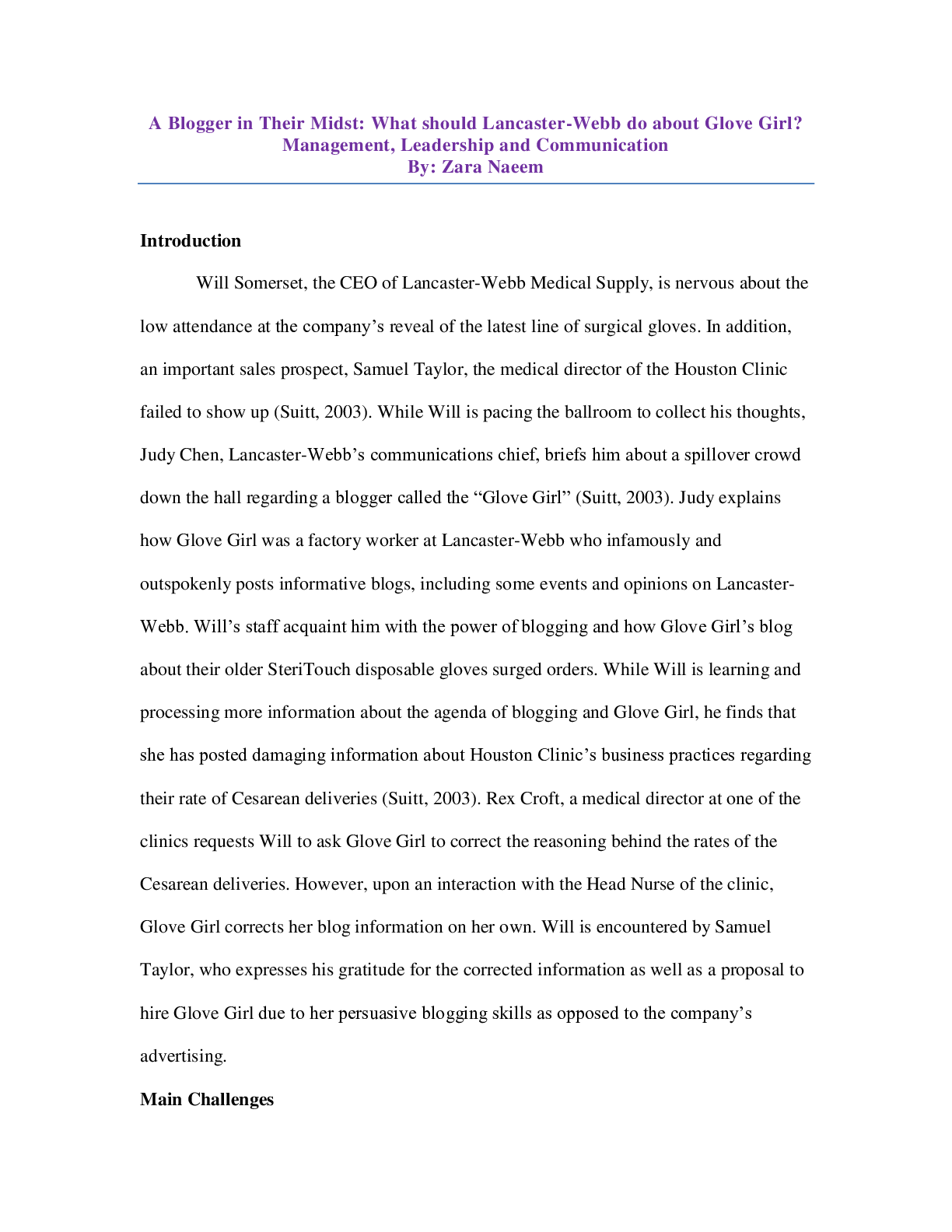*NURSING > Research Paper > UTSOnline: Fundamentals of mental health nursing. Recovery and the Therapeutic Relationships (1500 W (All)
UTSOnline: Fundamentals of mental health nursing. Recovery and the Therapeutic Relationships (1500 Words). No Plagiarism.
Document Content and Description Below
I online.uts.edu.au My Assessment 2: Essay Criterion 1 (worth 10%) Discusses the meaning of recovery in mental healthcare/ mental health nursing, and identifies three (3) principle tenets.... Supports answer by referencing literature and evidence, and writes in manner consistent with academic conventions. Criterion 2 (worth 10%) Discusses how recovery is applied in mental health nursing, and or mental healthcare in general. Supports answer by referencing literature and evidence, and writes in manner consistent with academic conventions. Criterion 3 (worth 10%) Discusses how and why nurses develop therapeutic relationships/alliances with consumers. Supports answer by referencing literature and evidence, and writes in manner consistent with academic conventions. Criterion 4 (worth 10%) In discussing the therapeutic relationship/alliance, the discussion is related to recovery principles. Supports answer by referencing literature and evidence, and writes in manner consistent with academic conventions. References Bratton, SUE c., ray, Dee C., Minton, Casey A. Barrio, & Purswell, Katherine E. (2014). Children’s Experiences in the Therapeutic Relationship: Development and Validation of a Self-report Measure. University of North Texas. http://digital.library.edu/ark:/67531/metadc699964/. De Chesnay, M., & Anderson, B. A. (2016). Caring for the vulnerable: perspectives in nursing theory, practice, and research. Hazelton, M., Heffernan, M., & Trogoboff, K. (2018). Contemporary Psychiatric-Mental Health Nursing. Pearson Australia. Jacobson, N., & Curtis, L. (2000). Recovery as policy in mental health services: Strategies emerging from the states. Psychiatric Rehabilitation Journal. 23, 333-341. Kline, F. M., & Silver, L. B. (2004). The educator's guide to mental health issues in the classroom. Baltimore, P.H. Brookes Pub. Lyon, S., & Fogoros, R. (2018). The Recovery Model. https://www.verywellmind./what-is-the-recovery-model-2509979 v Patterson C., et al. (2016). Perceived Control among People with Severe Mental Illness: A Comparative Study. Archives of Psychiatric Nursing. 30, 563-567. Rugkasa, J. (2016). Coercion in community mental health care. [Place of publication not identified], Oxford Univ Press. Smith, G. (2014). Mental health nursing at a glance. http://public.eblchoice/pubpx?p=1829439. Wolf-Wasylowich, R. (2011). Humor within the therapeutic relationship: mental health therapists' experiences and understandings. [Prescott, AZ], [publisher not identified]. [Show More]
Last updated: 1 year ago
Preview 1 out of 7 pages
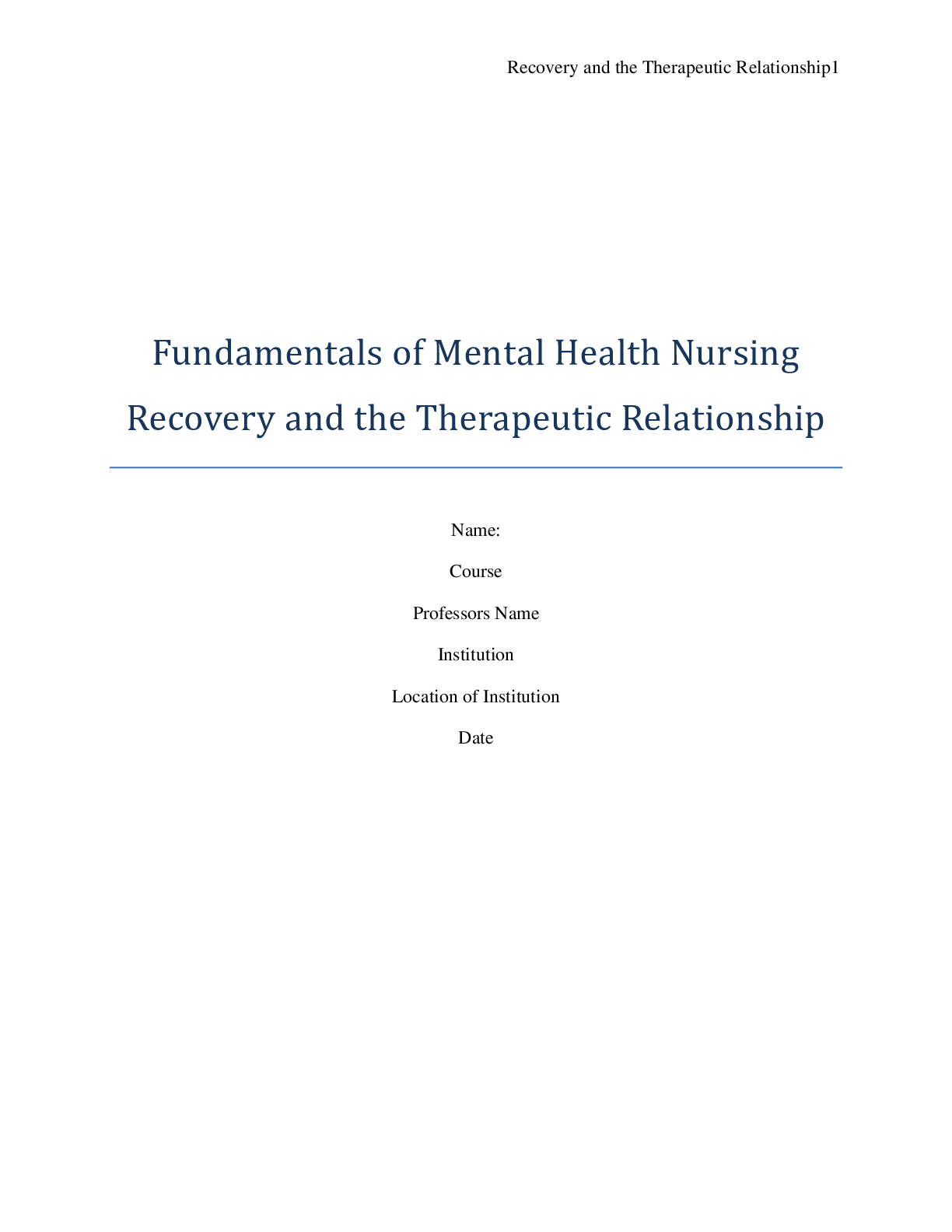
Buy this document to get the full access instantly
Instant Download Access after purchase
Add to cartInstant download
We Accept:

Reviews( 0 )
$16.00
Document information
Connected school, study & course
About the document
Uploaded On
Jul 11, 2020
Number of pages
7
Written in
Additional information
This document has been written for:
Uploaded
Jul 11, 2020
Downloads
0
Views
53

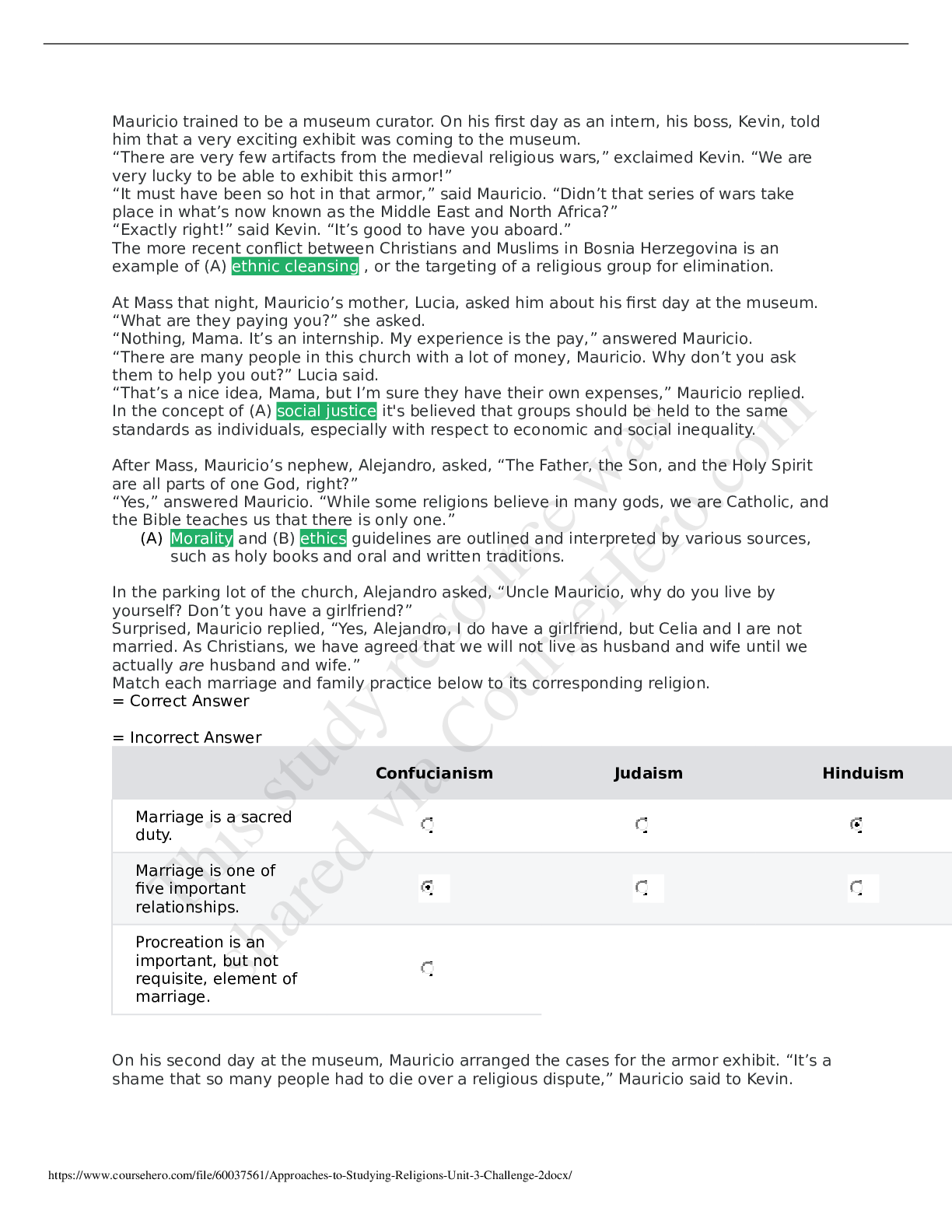
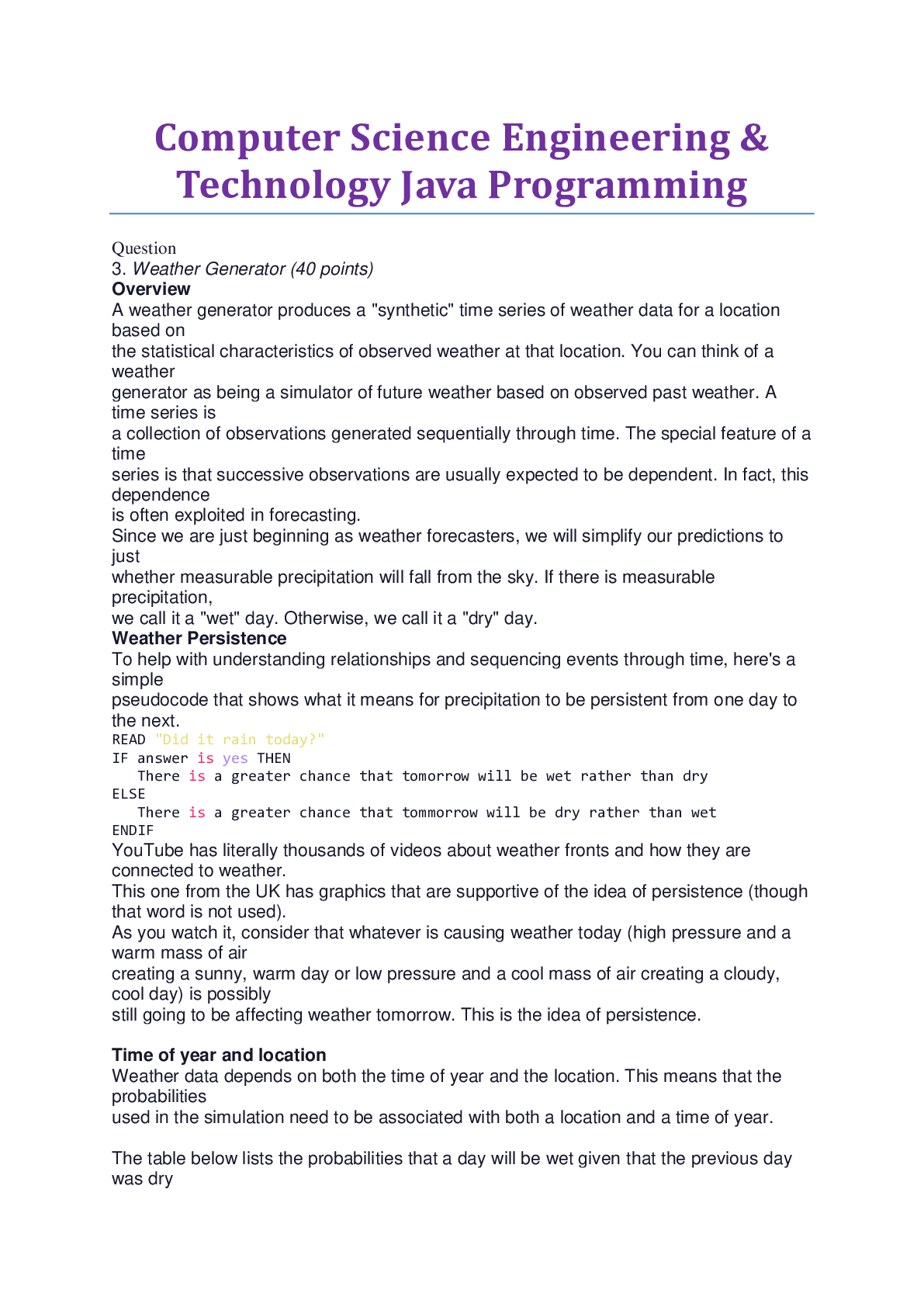
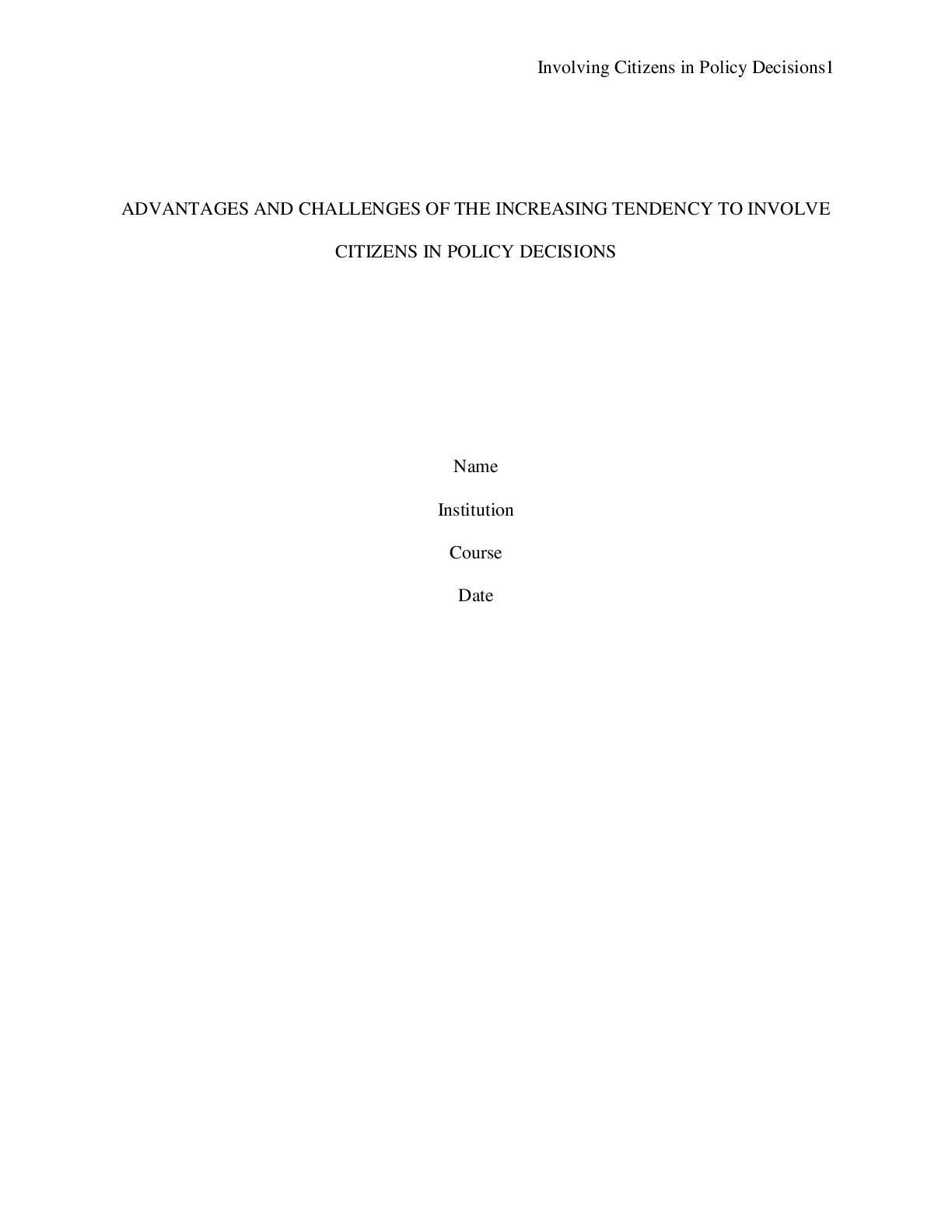
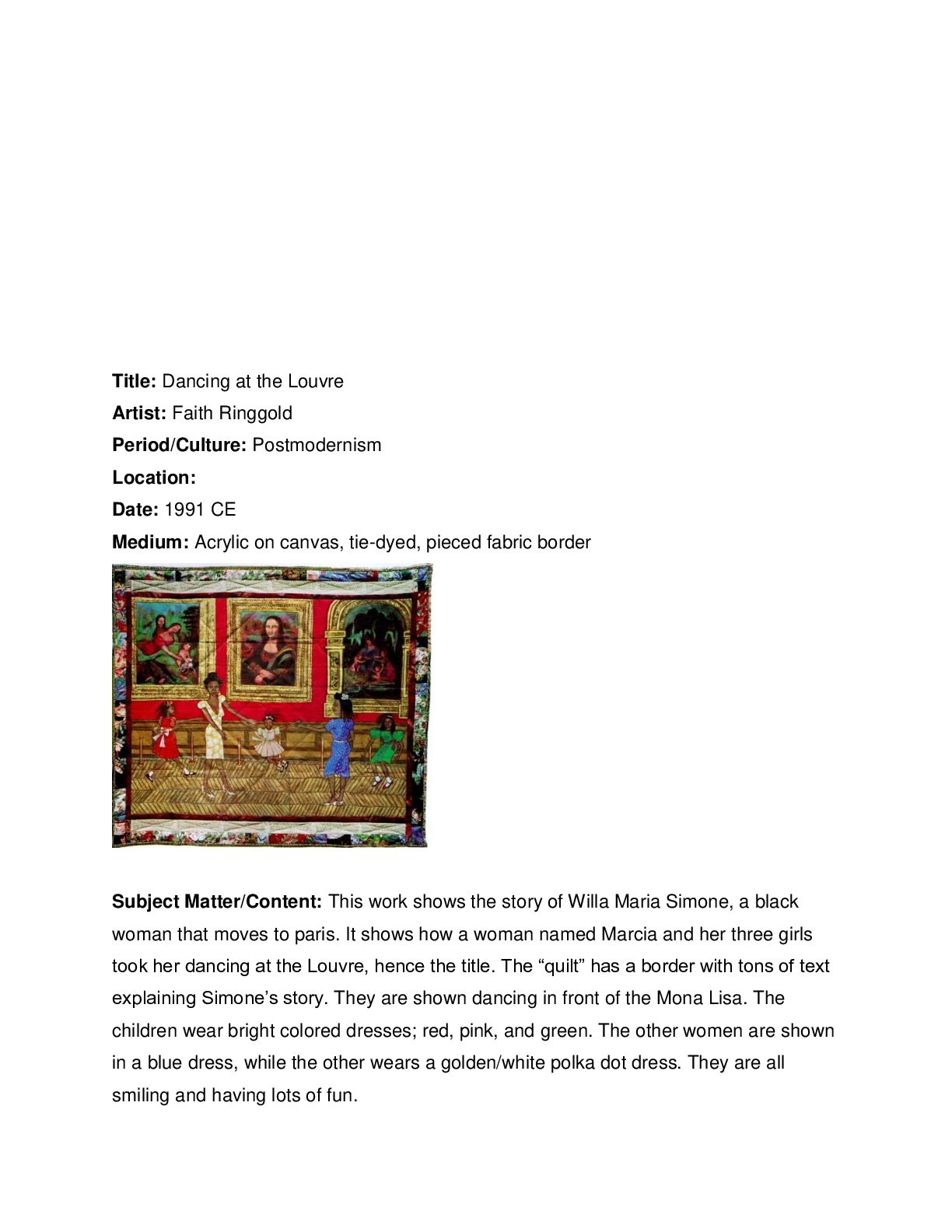
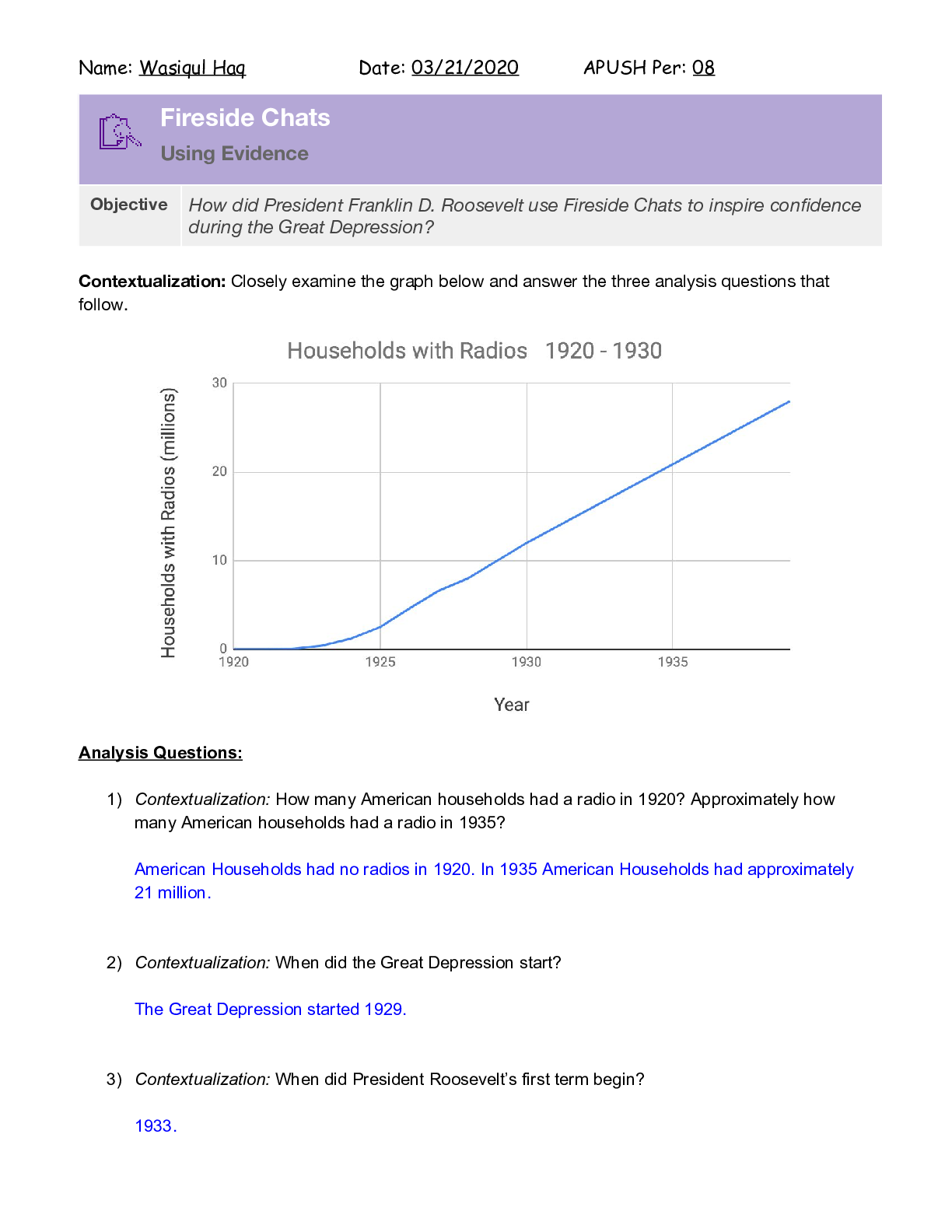
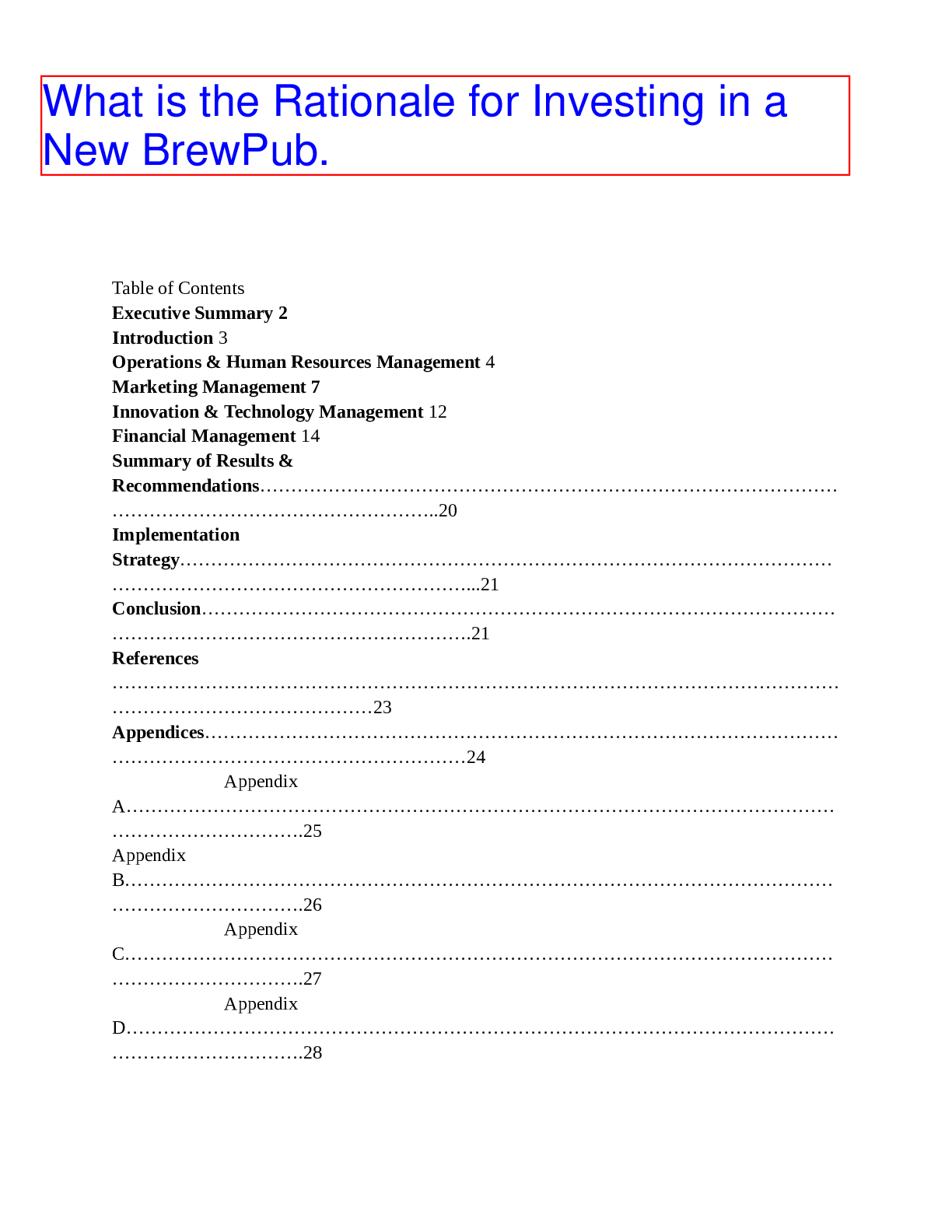




.png)
